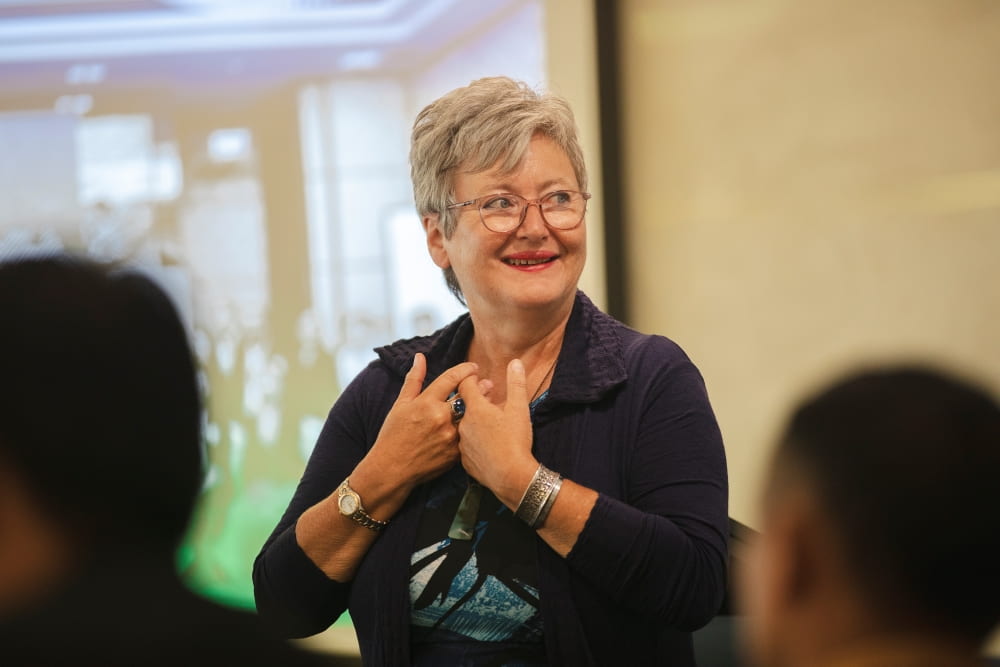With extensive experience in international peace and conflict advising as well as development and capacity building, UNE’s Dr Rebecca Spence has been at the forefront of facilitating dialogue internationally on the topics of equity, diversity, and inclusion.
Professor Spence is the Director of International Capacity Building at the University of New England. Her career began with student activism as a university student around the issues of the time such as supporting the miners’ strike in the United Kingdom and volunteering in South Africa during the transition into a post-apartheid democracy.
Having worked in over 40 countries, Prof. Spence’s expertise in designing and facilitating programs in development and capacity building has drawn such partners as the United Nations, Australian Department of Foreign Affairs and Trade (DFAT), and most recently, the Australian Centre for International Agricultural Research (ACIAR).
“I’ve had a particularly exciting change in my career, working with the Australian Centre for International Agricultural Research, learning about how people at the absolute coal face of climate change are working to secure their communities and their countries, and tackle issues around food security and human nutrition,” Prof. Spence said.
Among the varied projects and fellowship programs Prof Spence either designs, facilitates or delivers, she considers one of her greatest achievements to be her work with women scientists through the ACIAR funded Meryl William Fellowship. This prestigious fellowship supports the leadership aspirations of women agricultural scientists and policy makers in the Asia-Pacific by giving them tools and approaches to negotiate effectively as researchers to take up leadership positions in their home institutions and government ministries.
“I feel like I’m learning something every day working with women who are advocating for change in their countries, whether it be around climate change, peace and conflict, or understanding the gender and social inclusion dimensions of their work.”
“I do feel like I make a difference. I build people’s confidence, which allows them to lead more effectively, strengthen their institutions, and make the decisions needed for change.”
Whether Prof. Spence is designing and facilitating gender mainstreaming workshops with public servants from Laos or leadership and management training for agricultural scientists working in food security in Bangladesh – gender equity, diversity and inclusion training is fundamental to her approach.
“Over my forty-year career I have seen the inclusion space expand. Forty years ago, we were gender blind, only to eventually push further to becoming gender aware. This development hasn’t stopped either, now an intersectional lens applies to every development and capacity program that we run. That’s progress.”
“Addressing women who are interested in exploring international capacity building and development as a career, Prof. Spence encourages women to draw on their lived experience with the gender dimensions of the places they already know.
“Forget that impostor syndrome that’s sometimes in our heads. We women know what it means to lead. The knowledge we bring with us is so precious because we understand what it means to lead in our families, workplaces, and in sometimes very patriarchal cultures. You will always encounter obstacles, but never be afraid to speak up because you’re speaking up on behalf of so many people who are standing with you.”
For more on Prof. Spence and her work watch this video.
Written by Mike Terry, International Capacity Building UNE

